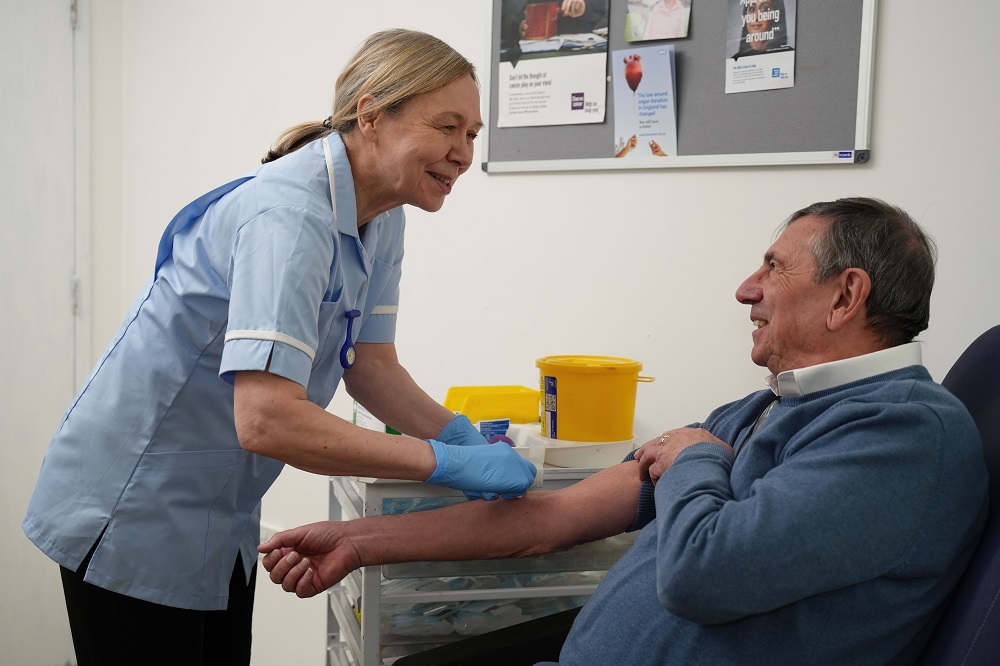Research
06 Apr 2024Faster MRI scans for prostate cancer will help more men access one
Research we funded could make prostate MRI scans quicker and cheaper, meaning shorter waiting times for men with suspected prostate cancer.

Men with suspected prostate cancer could soon find it easier to access an MRI scan as our research shows a quicker scan is just as good at detecting the disease as the current standard.
The quicker MRI scan takes around a third less time, meaning more men could be scanned each year – cutting their wait time to get a diagnosis and begin treatment.
Importantly, the shorter scan can be performed on existing scanners, meaning it could be introduced quickly on the NHS.
Increasing demand for prostate MRI
An MRI scan is a vital part of the way prostate cancer is diagnosed, enabling doctors to pinpoint where a biopsy should be targeted to test cells for the presence of cancer.
It also benefits men who don't have prostate cancer, enabling them to avoid a biopsy if their MRI scan is clear.
However, increasing demand for MRI scans means not all men can access one – demand that will only increase further once a screening programme for prostate cancer is in place. Our TRANSFORM trial, which aims to get the evidence to make a screening programme a reality, will consider multiple screening options, including MRI.
Faster scans find just as many cancers
The current gold standard MRI scan, known as multiparametric MRI (mpMRI), was introduced across the UK thanks to research we funded back in 2008.
However, the three-part mpMRI scan takes some time, with the third stage involving a dye injection that needs to be given by a professional and can cause mild side effects.
A scan that skips the injection stage could therefore save time and reduce the burden on men, while costing the NHS almost 50 per cent less than an mpMRI.
Testing the two types of scan on 555 patients from 12 countries around the world, the researchers from University College London and University College London Hospital saw the shorter scan was just as effective as the longer one.
Both scans found that 29 per cent of the men had prostate cancer that needed treatment.
New standard of care
Associate Professor Veeru Kasivisvanathan, lead researcher and chief investigator on the trial, said: “Since multiparametric MRI became standard of care for diagnosing prostate cancer, an important question has been whether we could streamline the scan further in order to make it more accessible, not just in the UK but in a wide range of healthcare settings and models.
“These results suggest that, providing that MRI image quality is good, we can adopt a shorter two-part biparametric MRI as the new standard of care for prostate cancer diagnosis.”
“I’m really proud of the team for delivering a complex, international multi-centre trial so quickly. I hope our results will soon be incorporated into clinical practice so that as many men with suspected prostate cancer as possible can benefit. Our vision is that every man who needs a prostate MRI should be able to get one”.
Working to improve new technologies
Dr Matthew Hobbs, Director of Research at Prostate Cancer UK, said: “It’s rare to see results like this that deliver impact for men so quickly after funding the research. MRI has already revolutionised prostate cancer diagnosis, and we’re thrilled to have funded this study that could further improve diagnosis for men across the globe.
“These results mean that men could now be given quicker scans, that are just as good, don’t require an injection and are cheaper to perform. This will allow more men to benefit from a better, more accurate diagnosis at a lower cost to healthcare systems not only in the UK, but worldwide. Crucially, this team has also produced guidelines to help hospitals improve the quality of their scans to such an extent that these new, quicker scans can be just as effective as the old ones.
“It also highlights just how important it is not to rest on our laurels when we make progress, which is why Prostate Cancer UK will continue working to improve new treatments and technologies through investment in excellent research like this.”





